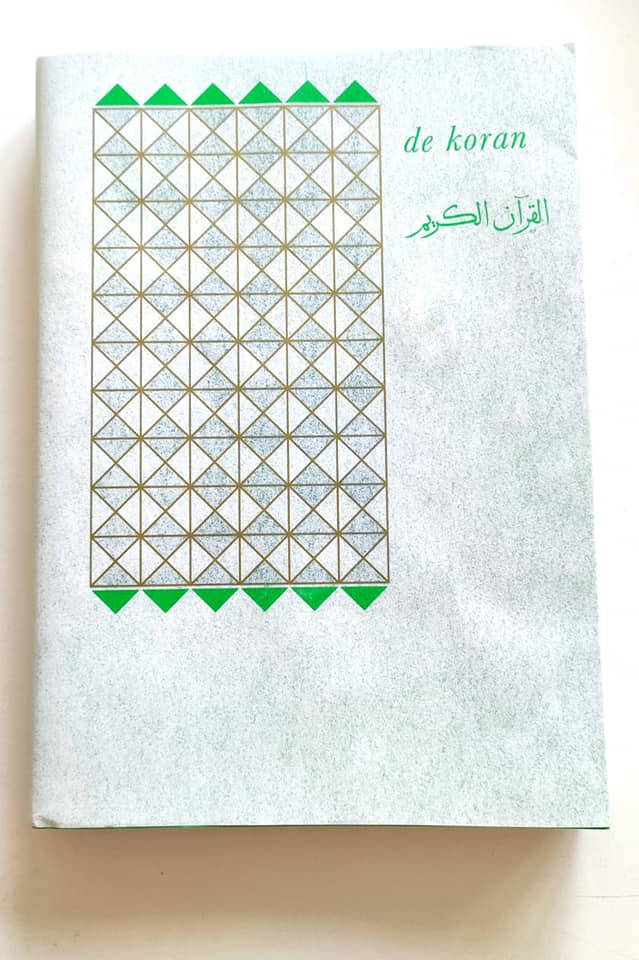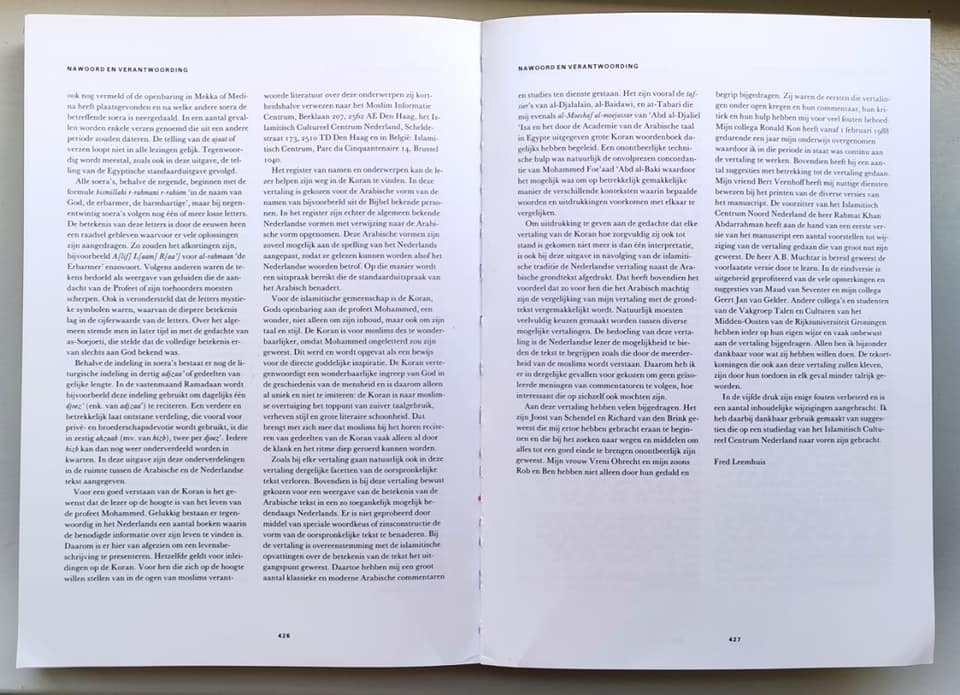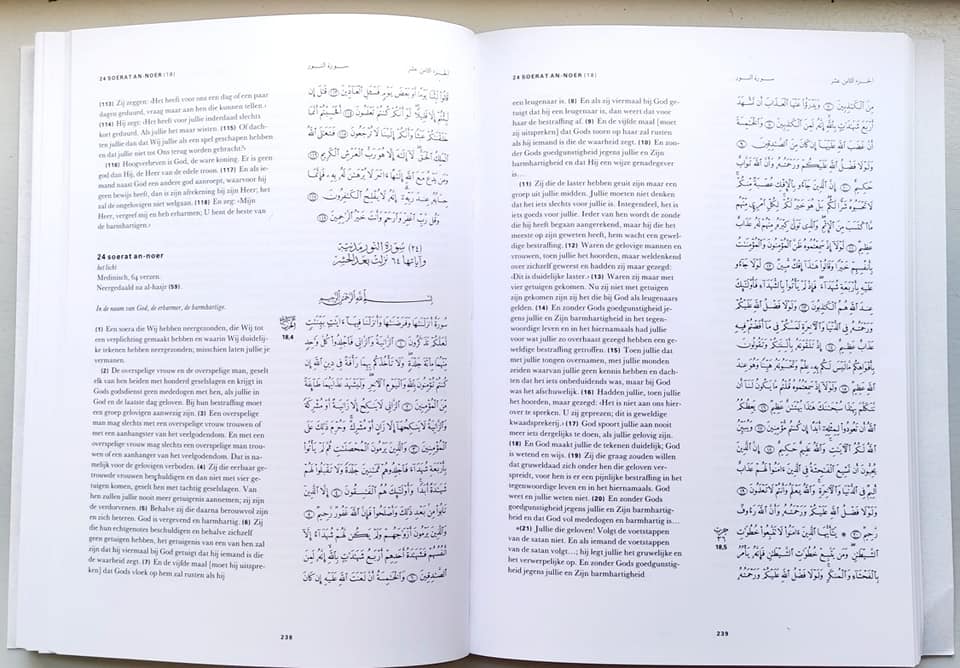Is the translation of the Qur’an by a non-Muslim justifiable? And what authority do non-Muslims have to translate the Qur’an? These are the kind of debates that arose in the Netherlands following the publication of the first edition of Fred Leemhuis’s Dutch translation of the Qur’an in 1989. Leemhuis chose the word ‘weergave’ (‘rendering’/‘representation’) for the title of his translation, a choice which inspired a lot of responses, from both scholars and lay Muslims. Who Fred Leemhuis is, what his motivation for translating the Qur’an into Dutch was, what is special about De Koran (which was printed in its eighteenth edition in 2020), and what reception his translation was met with, are some of the questions addressed in this piece.
Fred Lemhuis is a Dutch Arabist who started his academic career at the University of Groningen in 1965. As a doctoral student, he wrote a dissertation on wazan faʿala and afʿala in the Qur’an. His interest in Arabic led him to live in Egypt, where he worked at the Netherlands’ Institute, Cairo, for about nine years. After this he returned to his alma mater at the University of Groningen, where he built up a reputation as an Arabist and Qur’an specialist, especially after the publication of De Koran. As a linguist, he has the ability to read and interpret the Qur’an directly from the original Arabic, and his translation is one of his most phenomenal works.
The aim of the translation, as stated in the ‘Afterword and Justification’, was ‘to give Dutch readers an opportunity to understand the text as it is understood by Muslims,’ and Leemhuis is clear that his target audience is ‘non-believing Dutch people who want to understand their Muslim neighbours.’ Though having a non-Muslim audience in mind, the translation most probably also benefitted a large share of second- and third-generation Muslim migrants from countries such as Morocco, Iraq, Suriname, Indonesia, and Turkey, who have poor command of Arabic and use Dutch as their spoken language much more than their parents.
Differing from the conventional format of Qur’an translation in the Islamic world, De Koran is paginated according to Latin languages, i.e. from left to right, and culminates with an index of names, as do many Latin books. The Dutch translation and the original Arabic text are laid out alongside one another, so that the readers can directly compare the translated meaning with the Arabic. However, although the Arabic text is included, the weight of the book, which is printed on thick, heavy paper but with the Arabic in a small font, is not one that would be convenient for everyday recitation, as Muslim believers might use a translation.
As far as language is concerned, Leemhuis, as he puts it in the Afterword, consciously chose the most accessible representation of the meaning of the Arabic text in contemporary Dutch. He made no attempt to approximate the original text’s form through specific word choice or sentence construction. In addition, so as to create an authoritative voice, Leemhuis states that he consulted both modern and classical Qur’an commentaries and dictionaries, primarily those of al-Jalālayn, al-Bayḍāwī, and al-Ṭabarī, and al-Musḥaf al-muyassar by ʿAbd al-Jalīl ʿĪsā, as well as that of Muḥammad Fuʾād ʿAbd al-Bāqī, although he does not reference any of these sources directly anywhere in his translation. With Dutch non-believers as his main target readers, Leemhuis also makes it clear that, when translating some verses, he decided not to follow the opinions of these commentators, however interesting they might be.
Leemhuis puts forward the idea that Muslims in general follow al-Suyūṭī’s opinion that the full meaning of the Qur’an is known only to Allah. In line with this, Leemhuis believes that any translation of the Qur’an, no matter how carefully crafted it is, is no more than a form of interpretation. In a section on translations of the Qur’an by non-Muslims in his article entitled ‘From Palm Leaves to the Internet’ (The Cambridge Companion to the Qur’ān, 2006) he acknowledged that many Qur’an translations by non-Muslims ‘fail to convey, what in the mind and hearts of Muslims, the Qur’an means as holy scripture,’ a failure that he tried to reduce by referring to various Muslim commentaries in his De Koran.
For Muslims such as Sofjan Saury Siregar, an Indonesian Muslim intellectual living in the Netherlands who served as the Director of the Islamitisch Cultureel Centrum Nederland (ICCN), Leemhuis’ translation seems to contain both linguistic and, as a result, theological problems. In response to Leemhuis’ translation, Siregar specifically wrote an article in Arabic (n.d.), that was widely circulated among Islamic websites (such as quran-for-all.com) entitled Mulahadhāt ʿalā tarjamat maʿānī al-Qurʾān ilā al-lugah al-Hūlāndiyyah li’l-mustashriq al-Hūlāndī Fred Leemhuis (Notes on the translation of the meanings of the Qur’an into Dutch by the Dutch orientalist Fred Leemhuis’), in which he laid out his main objections.
In his translation of Sūrat al-Jumuʿah, for example, Leemhuis translates jumʿah as ‘de dag van de samenkomst’ (‘the day for meeting’), instead of ‘Vrijdag’ (‘Friday’). This concerns Siregar, since it may leave later generations of Muslims unaware of the obligatory nature attached to Friday prayer. Siregar finds the same problem with Leemhuis’ translation of the word aṣbaḥa in Sūrat al-Shuʿarāʾ, verse 157, and Sūrat al-Qaṣaṣ, which he translated as ‘morgens’ (‘morning’): ‘maar zij sneden haar hielpezen door en kregen ers-morgens spitj vani’ (‘they killed him and in the morning they regretted it’). For Siregar, this translation is simply wrong because aṣbaḥa here means ‘to become’. One of the most unacceptable errors for Siregar, however, is the use of the word ‘God’ instead of ‘Allah’.
Siregar went so far as to invite Leemhuis to a meeting with his Indonesian Muslim colleagues, who are graduates of Middle Eastern universities, to talk about his translation. They seem to have found Leemhuis’ response to their objections disappointing, enough so to prompt Siregar and his team to compose another Dutch translation of the Qur’an, which was published under the title De Edele Koran in 1996, to ‘correct’ Leemhuis’ translation. The aim of this translation, not surprisingly, is to help ‘Muslims to understand the meaning of the Qur’an from the perspective of Muslims.’ The meeting with Siregar and his colleagues is most probably what Leemhuis acknowledged in the Afterword of the 2020 edition as ‘a study day’ held by ICCN, to which he says he benefitted from. In the fifth edition, Leemhuis was happy to make ‘substantive changes’ on the basis of the team’s suggestions, though the word ‘God’ remains until the most recent edition in 2020.
As Tijani Boulauoali has stated (2019), Leemhuis’s translation represents a turn in Qur’an translation in the Western world, from apologetics defending the (Christian) faith to intellectual curiosity to learn more about Islam. Several people, including two Muslims, Rahmat Khan Abdarrahman, the President of Islamitisch Centrum Noord Nederlands, and A.B. Mukhtar, read and commented on various parts of Leemhuis’ manuscript prior to its publication. Thus, any criticism of his translation on the basis that non-Muslims lack authority to translate the Qur’an should be treated carefully since, although the translation bears Leemhuis’ name, the reality is that various people, both non-Muslim and Muslim, have contributed to the production of De Koran, however small their contribution might be.
Yulia Riswan



